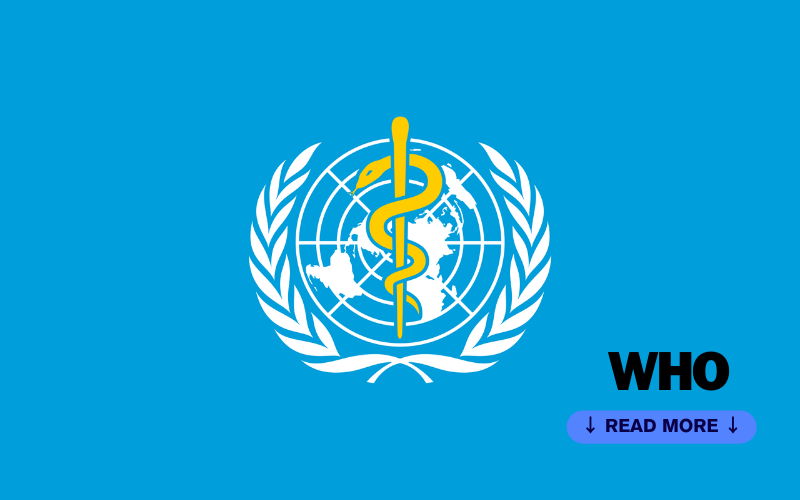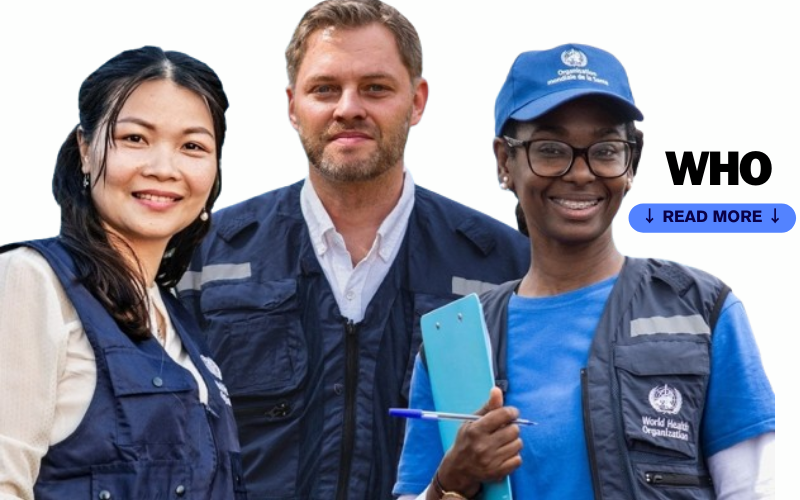One ubiquitous presence that provides hope, direction, and resilience in the field of global health is the World Health Organisation, or WHO. However, what precisely is WHO, and why is it relevant? Together, we will explore the inner workings and importance of this powerful organisation.
Table of Contents
Understanding WHO
WHO is fundamentally an international organisation devoted to public health. WHO was established in 1948 and has its main office in Geneva, Switzerland. It functions as a specialised agency of the UN, with the main goal being to guarantee that everyone on the planet has access to the best possible standard of health.
Mission and Mandate
The three main goals of Who is mission are the delivery of critical health services, the advancement of health justice, and universal health coverage. Its mandate covers an enormous range of duties, including:
Disease Control: The World Health Organisation is in charge of battling infectious diseases such as COVID-19, HIV/AIDS, malaria, and tuberculosis. WHO works to limit outbreaks and lessen their effects via research, surveillance, and cooperation with member states.
Strengthening Health Systems: The World Health Organisation collaborates with nations to improve their ability to provide high-quality healthcare services effectively because it understands the value of strong health systems. This entails steps to strengthen the healthcare system, educate healthcare professionals, and increase accessibility to necessary medications and equipment.
Health Policy Development: The World Health Organisation offers evidence-based recommendations to influence national and international health policies. The goals of Who is policy initiatives range from establishing standards and norms to promoting health equity and creating environments that promote health and well-being.
Emergency Response: The World Health Organisation is essential in coordinating emergency responses during times of crisis, including natural disasters, armed conflicts, and disease outbreaks. Quick resource deployment, technical know-how, and logistical assistance are some of Who is most important global humanitarian contributions.
Guiding Principles
Central to World Health Organisation modus operandi are its core values and principles:
Human Rights: The World Health Organisation maintains that everyone has the right to unrestricted access to basic healthcare services and that everyone’s health is a fundamental human right.
Equality: The World Health Organisation promotes health equality by working to lessen differences in health outcomes across and within nations, especially for disadvantaged and marginalised groups.
Collaboration: In order to maximise the pooling of knowledge and resources, the World Health Organisation encourages cooperation between nations, international organisations, and other relevant parties.
Transparency: Ensuring accountability and reliability in its decision-making procedures and communications, transparency is crucial to Who is activities.

WHO in Action
The WHO has had a significant and varied influence on public health, leading immunisation efforts, eliminating smallpox, and improving medical research. Here are a few noteworthy instances of Who is work in progress:
Global Immunisation Campaigns: The World Health Organisation spearheads initiatives to increase global access to vaccines that can save lives, resulting in a notable decline in childhood vaccine-preventable disease mortality.
Tobacco Control: The Framework Convention on Tobacco Control (FCTC), established by the World Health Organisation, is a historic agreement that aims to reduce tobacco use and its harmful health impacts by means of extensive regulatory measures.
Health Emergencies: In the midst of the COVID-19 pandemic, WHO was instrumental in organising international reactions, communicating vital information, and assisting in the fair distribution of vaccines, tests, and treatments.
Health Promotion: By organising events such as World Health Day and World No Tobacco Day, the World Health Organisation brings attention to urgent health concerns, encouraging people to lead better lives and support legislation that promotes these changes.
Criticisms and Challenges
Even with its priceless contributions to world health, World Health Organisation nevertheless has to deal with a lot of obstacles and criticism.
Funding Restrictions: Because a large portion of Who is budget comes from voluntary contributions, the organization’s financial stability is in jeopardy and may be influenced by donors.
Bureaucratic Hurdles: International organisations, like the WHO, are notoriously bureaucratic, which can make them less flexible and responsive and make it more difficult to act quickly in an emergency.
Political Interference: Member state conflicts and geopolitical tensions could make it more difficult for WHO to remain neutral and put public health before politics.

The Road Ahead
Looking ahead, the World Health Organisation has a difficult but necessary task: navigating the intricacies of health concerns in the twenty-first century while adhering to its core values. Who is position as a global health leader is becoming more and more important as we face persistent dangers like pandemics, climate change, and developing infectious diseases.
Conclusion
In the field of global health, WHO essentially serves as a beacon of hope, resiliency, and togetherness. Its ceaseless efforts to advance wellness, fend against illness, and lessen suffering perfectly encapsulate our shared desire for a world that is healthier and more just. Let us, as individuals, communities, and nations, support the great purpose of WHO, understanding that our shared future depends on our capacity to come together, work together, and protect the fundamental right to health for all. As a team, we can create a world in which health genuinely transcends all boundaries.
Within the enormous field of global health,World Health Organisation is a beacon of hope and a resolute defender of the most valuable resource for humanity: our health.



Стильные заметки по выбору отличных образов на любой день.
Заметки профессионалов, новости, все дропы и мероприятия.
https://vladtoday.ru/news/2024-09-10-10-prichin-za-chto-my-lyubim-demnu-gvasaliyu/